
In a move that further reshapes the global liner landscape, Hapag-Lloyd has agreed to acquire ZIM Integrated Shipping Services Ltd. in an all-cash transaction valued at approximately $4.2 billion, the companies announced today.Under the terms of the merger agreement, Hapag-Lloyd will acquire ZIM for $35.

As global demand for data storage and processing accelerates — driven by cloud computing, streaming media, and the explosive growth of artificial intelligence — the physical footprint of data centers has become a growing challenge. Land-based facilities face mounting constraints: limited space, water scarcity, grid congestion, long permitting timelines and rising community opposition.

When we interviewed Saronic Co-Founder and CEO Dino Mavrookas late last year, he insisted that Saronic's mission was to deliver commercially viable autonomous vessels first, and in turn parlay that into a ready package for defense. That vision comes to fruition as Saronic announced a partnership with Hornbeck Offshore Services, Inc.

The Trump administration suspended leases on Monday for five large offshore wind projects that are under construction off the U.S. East Coast over what it called national security concerns, sending shares of offshore wind companies plunging.The suspension was the latest blow for offshore wind developers that have faced repeated disruptions to their multi-billion-dollar projects under U.S.

Canada's Prime Minister Mark Carney signed an agreement with Alberta's premier on Thursday that rolls back certain climate rules to spur investment in energy production, while encouraging construction of a new oil pipeline to the West Coast.Under the agreement, the federal government will scrap a planned emissions cap on the oil and gas sector and drop rules on clean electricity in exchange for
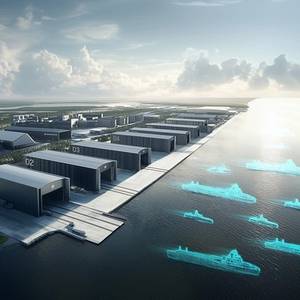
In a shipbuilding industry defined by tradition, one new entrant is seeking to rewrite the rules of how naval vessels are designed, built and delivered. Saronic Technologies, founded just three years ago, is racing to create what CEO Dino Mavrookas calls “a next-generation shipbuilding ecosystem” — one capable of delivering unmanned surface vessels (USVs) at the speed and scale the U.S.
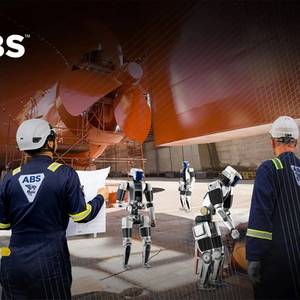
ABS and Persona AI inked an MOU to develop inspection technologies for Persona AI’s humanoid robot platform deployment in shipyards. Humanoid robots are suited to operate in shipyards designed for human workers, offering flexibility and mobility in complex, confined, or ergonomically challenging spaces.
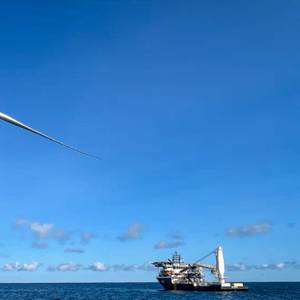
The Trump administration on Friday ordered Denmark's Orsted to stop far-advanced construction on an offshore wind project near Rhode Island, in a move that threatens to exacerbate the company's financial troubles.With construction now frozen at 80% completion, Orsted has no immediate path to revenue generation, heightening pressure on the company as it seeks to shore up finances through a $9.
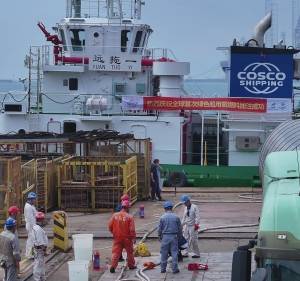
Sinobunker, one of COSCO Shipping’s subsidiaries, has completed the world’s first green ammonia bunkering operation at COSCO Shipping Heavy Industry’s Dalian terminal.The ammonia was sourced from the world’s largest green hydrogen and ammonia plant established by Envision in Chifeng and powered entirely by the world’s largest independent renewable energy system.
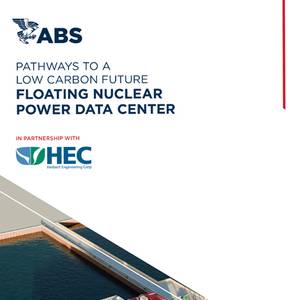
How can the global energy grid keep pace with fast-growing demand from new data centers supporting artificial intelligence (AI) and cloud computing? Nuclear energy and coastal waters offer a potential answer.The potential for floating nuclear-powered data centers is explored in depth in the latest research from ABS and Herbert Engineering.

The threat that AI and quantum computing pose to cyber security is already here, even before these technologies are mature enough to crack today’s encryption methods. Bad actors are taking a “harvest now decrypt later” approach to cyberattacks.Classical encryption methods like Rivest–Shamir–Adleman (RSA) and Elliptic Curve Cryptography (ECC) rely on the difficulty of factoring large numbers or

Newly released video footage captured by advanced AI-powered cameras has provided crucial insights into the collision between the container ship MV Solong and the U.S.-flagged tanker Stena Immaculate off the port of Grimsby earlier this week.The footage, recorded by Orca AI’s SeaPod lookout unit mounted on the anchored tanker Ionic Aspis, reportedly shows the exact moment of impact.